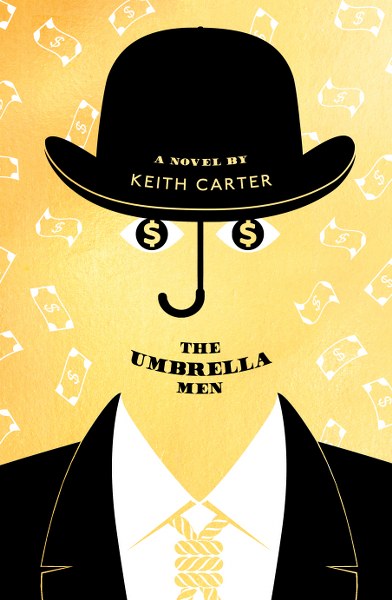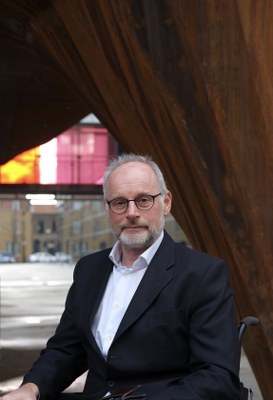The Umbrella Men
by Keith Carter
Genre: Contemporary Fiction
A witty and acerbic novel for our times about corporate greed, the hubris of bankers, contradictions of the clean energy economy and their unintended consequences on everyday people.
Finance, environmentalism, rare-earth mining and human frailties collide in a complex of flawed motives. We follow Peter Mount, the self-made Chief Executive of a London-based rare-earth mining company as he and his business are buffeted by crisis-torn Royal Bank of Scotland and by his own actions, real and imagined. Meanwhile in Oregon, Amy Tate and her group of local environmental activists do their contradictory part to undermine a component of the green economy, unwittingly super-charged by the Chinese state. The repercussions of events in pristine Oregon are felt in the corporate and financial corridors of New York and London with drastic consequences. This is a deeply involving novel about the current workings of capitalism, miscommunication, causes and unexpected effects, love and survival.

4 Green Unintended Consequences
The Green Thing was definitely a big plus for Rareterre. Peter wondered if Al Gore had ever
been to grim Baiyun-Obo, the immense opencast rare-earths mine in Mongolia, source of
many materials vital for wind turbines and hybrid cars and such things. “The black heart of
the green economy” someone had called it. Peter had been there – he had the photos on
his telephone to show people – and to the clay deposits in south-eastern China, where a
mafia-operated artisanal extraction using the most rudimentary opencast acid techniques
made Baiyun-Obo look like a Swiss mineral-water plant in comparison.
Rareterre and other Western competitors would employ far more environmentally
acceptable methods which, although much more expensive financially surely represented a
huge potential advantage when the objective is green? But no one wanted to draw too
much attention to this matter either, because all rare-earth extraction, all mineral
extraction of any sort, has its environmental cost. Massive amounts of energy are used,
carbon emitted, acids and other chemicals employed, rivers-full of water consumed. And
yet, in the rush to address environmental and climate change issues, taxpayers’ money and
political capital by the bucket-load were being expended to promote the development of
technologies requiring rare-earths. The mining of these was leaving tracts of rural China
poisoned, uninhabitable wastelands with abandoned, contaminated rice paddies and water
tables, and scarred barren topsoil pockmarked with acidic extraction pits.
The half-ear Peter had still trained on the proceedings in Mayfair, worlds away from Baiyun-
Obo, noted that Olivier was still boring to Olympic standard on the difficulties of
coordinating approvals, investments and finance. James was about to speak, Peter could
tell. He could also sense that Jens and VV IV were a lost cause – the man was about as likely
to invest in Rareterre as he was to pay PAYE income tax like a normal person.

Keith Iain Carter was born in Scotland in March 1959, second son of Marian van Westendorp and Ralph Carter. He attended a variety of bog standard state schools in northern England and in 1978 went up to Cambridge to read Economics, taking a First in 1981 when he was elected a Scholar – too late to enjoy the privilege of walking on the grass.
Other than corporate annual reports, he has not previously been published, unless you count a letter printed in Business Week deploring the widespread use of the word ‘wannabe’ and this quote in Investors Chronicle: “I used to be a banker, then I went straight”.
As an investment banker Keith worked for three now-disgraced institutions - he denies that any causation is associated with this correlation - Lloyds, Drexel Burnham Lambert and NatWest (RBS). A corporate financier, he ended up by specialising in pharmaceuticals and, in 1998, was part of a team acquiring a small vaccine business from GSK. As CEO he took the company public in 2004. Since 2010 Keith has worked as a business consultant to healthcare companies and as a writer, which he prefers.
Keith lives in London, Yorkshire and aboard a boat currently in Greece. He is a French-speaking Europhile who also loves America, travel, politics and economics, reading and writing, music, sailing of all kinds and food and drink.
Follow the tour HERE for exclusive excerpts and a giveaway!








No comments:
Post a Comment